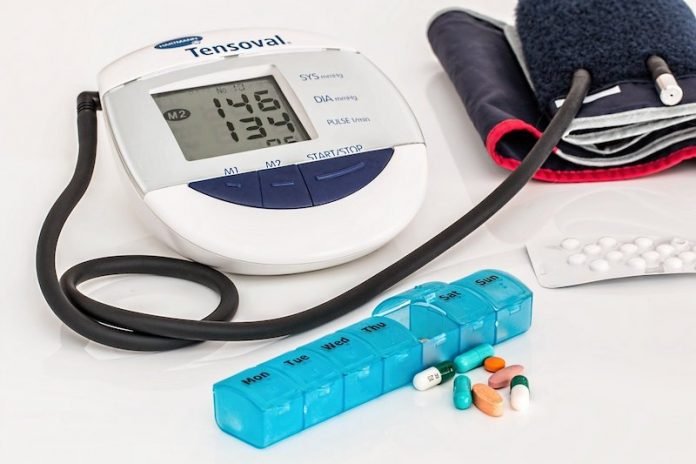
In a recent study published in Hypertension, researchers found that women taking beta-blockers for hypertension with no prior history of cardiovascular disease (CVD) have a nearly 5% higher risk for heart failure than men when they present to hospital with the acute coronary syndrome.
The study is from the University of Bologna and was led by Raffaele Bugiardini, M.D.
Beta-blockers are medications that reduce high blood pressure and are prescribed for adults with hypertension, a leading cause of CVD.
In this study, the researchers analyzed the effects of beta-blockers on men and women with hypertension and no history of CVD after presenting with acute coronary syndromes.
The incidence of heart failure was recorded to determine if the medication caused different outcomes depending on biological differences.
The research included data from 13,764 adults in 12 European countries who had hypertension and no prior history of cardiovascular disease.
Patients were classified by sex/gender and then separated into two groups: those taking beta-blockers and those who were not.
The researchers found that among the participants taking beta-blockers:
Women had a 4.6% higher rate of heart failure than men when presenting to the hospital with acute coronary syndrome;
The mortality of both men and women with heart failure was approximately seven times that of patients with acute myocardial infarction and no heart failure complications;
Women who had ST-segment elevation myocardial infarction (STEMI) were 6.1% more likely to have heart failure than men with STEMI, a serious form of a heart attack in which a coronary artery is completely blocked and a large part of the heart muscle is unable to receive blood; and,
Men and women not taking beta-blockers had approximately the same rate of heart failure.
The team says that for women who have no history of heart disease and only hypertension, it is incredibly important for them to regulate their blood pressure through diet and exercise.
It’s possible that the increased risk of heart failure for women is due to an interaction between hormone replacement therapy and beta-blockers, though this information was not collected or tested in our study.
This and other potential factors need to be investigated in more depth.
If you care about high blood pressure, please read studies that diet high in this nutrient may prevent high blood pressure and this berry juice may help lower high blood pressure.
For more information about blood pressure health, please see recent studies about whole fruit, sugar could change your blood pressure and results showing that this new discovery may improve treatments of high blood pressure and dementia.
Copyright © 2022 Knowridge Science Report. All rights reserved. (Updated)



